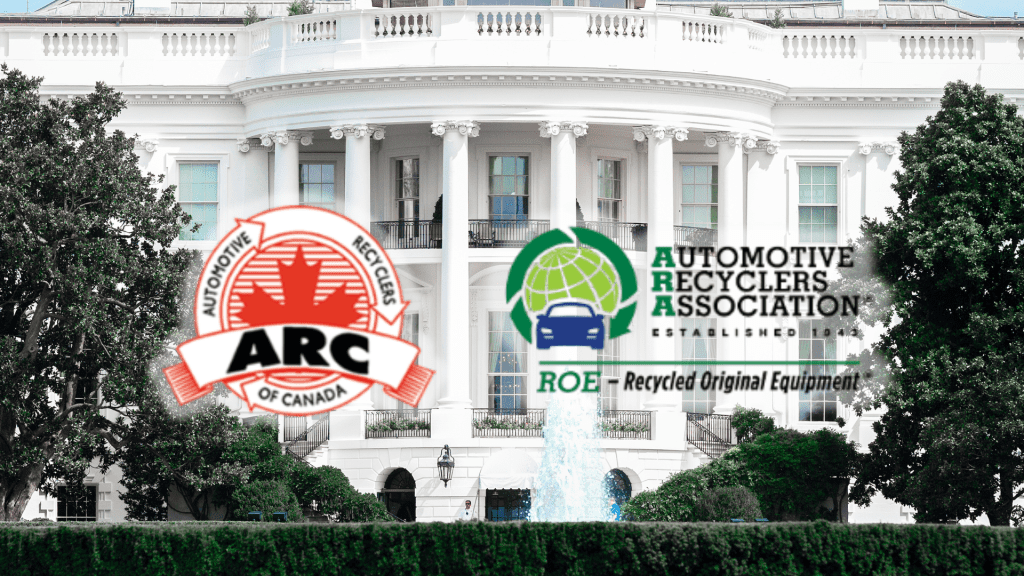Washington, D.C. – The Automotive Recyclers Association (ARA) and the Automotive Recyclers of Canada (ARC) are urging the White House to exempt used automobile parts from tariffs imposed under Section 232 of the Trade Expansion Act of 1962, citing affordability, sustainability and trade flow concerns.
In a joint submission, the organizations stressed that vehicle owners in both Canada and the United States rely heavily on affordable recycled auto parts to keep their vehicles on the road—particularly given the close cross-border trade relationship between the two nations.
“Used parts from end-of-life vehicles are not only critical to affordable repairs, they’re also central to environmental goals and the sustainability of our industry,” said Steve Fletcher, the former managing director of ARC. “Tariffs on these parts would drive up costs, reduce availability and hurt recyclers on both sides of the border.”
The ARA and ARC emphasized that applying tariffs to used parts is not practical due to challenges in determining origin under USMCA rules, valuing parts with varied conditions and mileage, and the impact such tariffs would have on the reclamation of critical minerals.
The ARA and ARC outlined three key reasons why used parts should be exempt from the tariffs:
-
It is impracticable for automotive recyclers to identify specific used automobile parts harvested from vehicles that qualify for preferential treatment under the USMCA.
-
It is impracticable to adequately value the used automobile parts subject to tariffs due to the subjective nature of used automobile parts and their unique conditions and mileage.
-
Without an exemption to tariffs, the import of used automobile parts containing critical minerals will decrease, which will cause a reduction in the reclamation of critical minerals within the U.S. to support new manufacturing.
“It’s nearly impossible for recyclers to track and verify the origin of each part in a way that meets tariff requirements,” said Sandy Blalock, executive director of the ARA. “And when fewer parts are imported, fewer critical minerals are reclaimed, which undermines long-term manufacturing and sustainability efforts.”
Together, the two associations represent thousands of automotive recycling facilities and tens of thousands of workers across North America. The ARA, founded in 1943, and the ARC, established in 1995, point to the industry’s longstanding role in the automotive supply chain as both an economic driver and a circular economy leader.


























